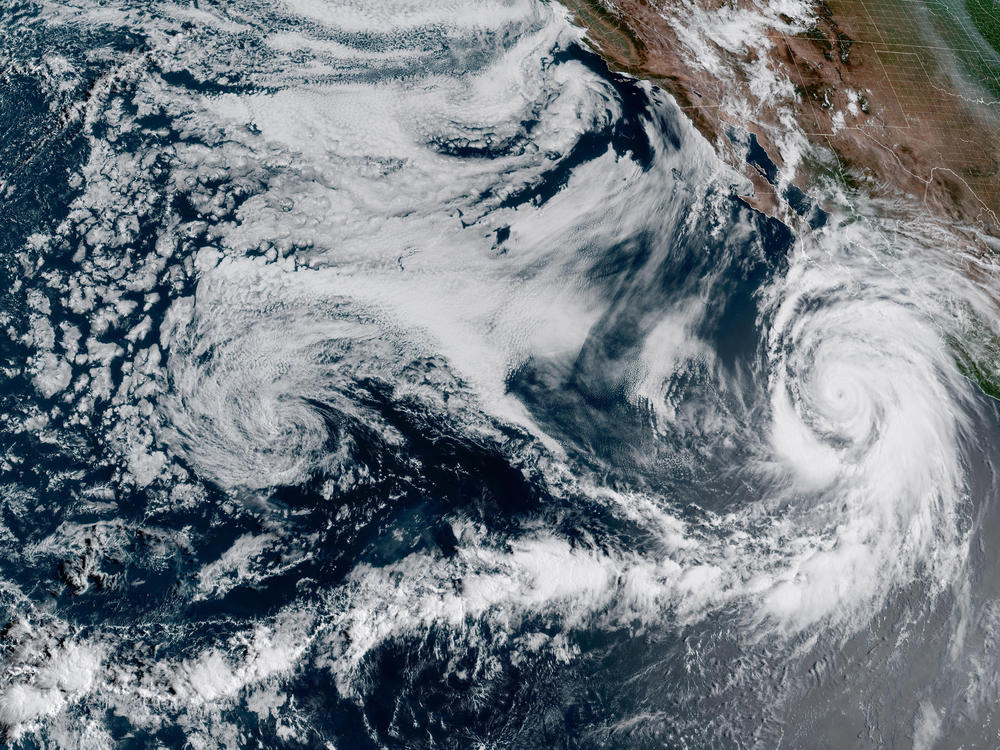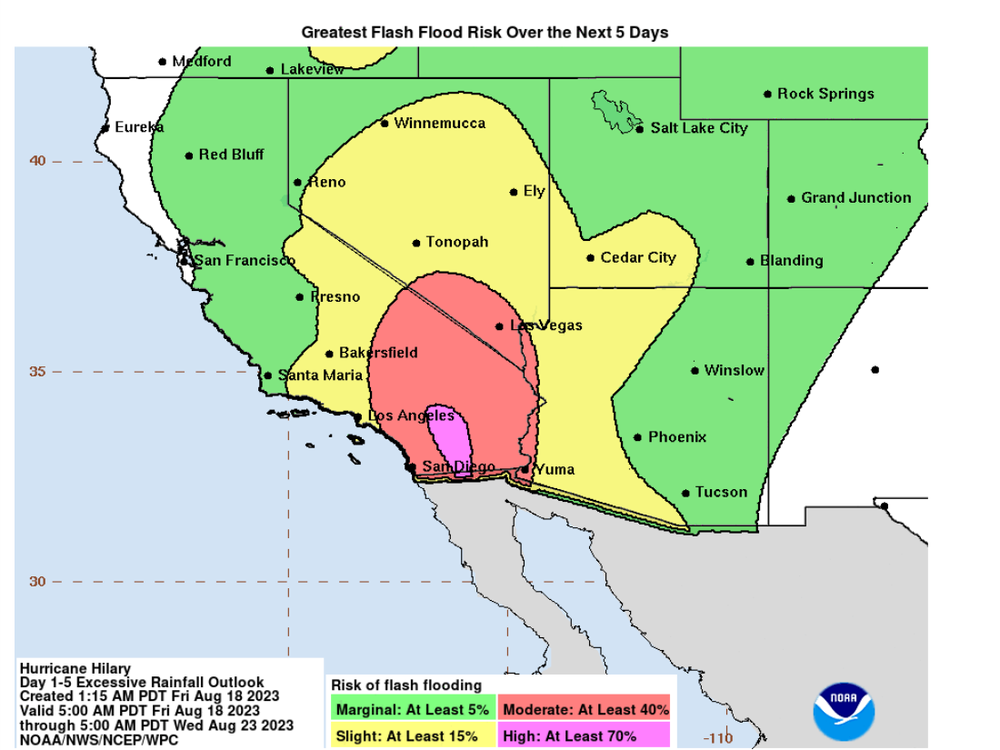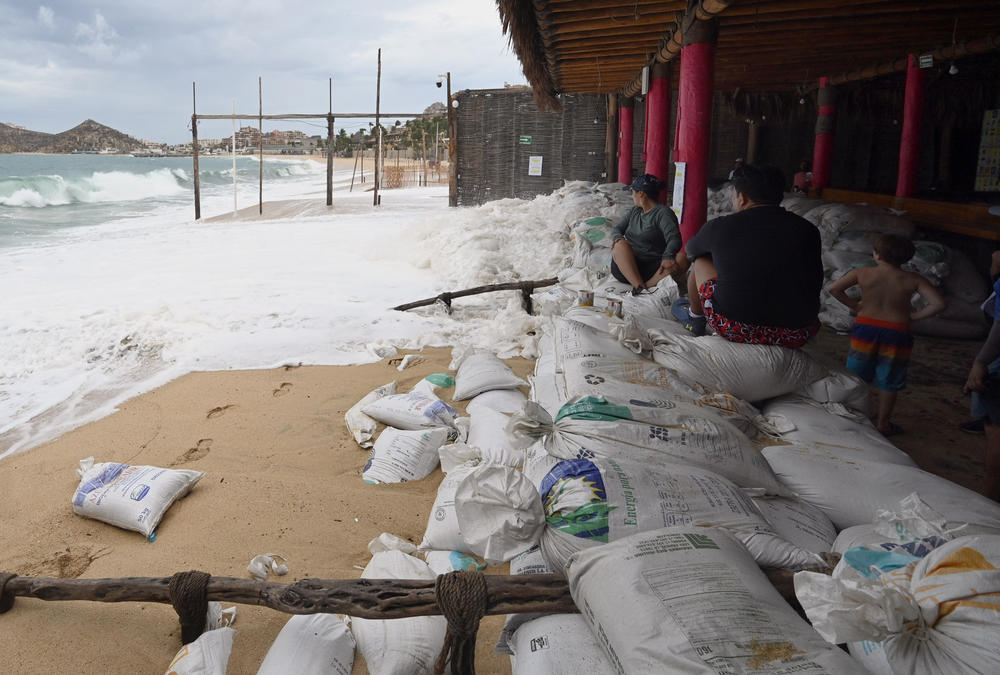Section Branding
Header Content
Hilary could be the first tropical storm to hit California in more than 80 years
Primary Content
Updated August 18, 2023 at 5:25 PM ET
Hurricane Hilary, now a powerful Category 4 storm churning off Mexico's Baja California peninsula, is making its way towards the Pacific coast. It's projected to hit Southern California as a tropical storm — the first since 1939 — by Sunday night and into Monday, bringing high winds and the potential for dangerous flooding.
"Life-threatening and potentially catastrophic flooding likely over much of Baja California and Southern California this weekend and early next week," the National Hurricane Center (NHC) said in a Friday afternoon advisory.
The NHC forecasts Hilary will make landfall in Baja on Sunday as a hurricane but lose strength as it makes its way north. It's expected to hit Southern California as a tropical storm as early as Sunday. Hilary's monsoonal rains will cause flash, urban and arroyo flooding with the potential for "significant impacts," the NHC said.
The storm will envelop southwestern California, with San Diego, Orange, Riverside, San Bernardino and Los Angeles counties all under a flood watch from Saturday night through Monday night, according to National Weather Service predictions. The heavy rains could result in flooding of rivers, creeks, streams and low-lying areas.
"Although it is too soon to determine the location and magnitude of these impacts, interests in these areas should monitor the progress of Hilary and updates to the forecast," the NHC advised.
Daniel Swain, climate scientist at UCLA Institute of the Environment and Sustainability, wrote on X, formerly known as Twitter, Friday that Hilary has "high potential to be a historic flood event" for the region. He's also predicting that Hilary could drop more than 1- to 2-years' worth of rain in California over the course of the storm.
The last time the Golden State was hit by a tropical storm was on Sept. 24, 1939, when what was left of a hurricane became a deadly tropical storm which soaked Los Angeles with more than 5 inches of rain in 24 hours, the NWS said. Flooding from the storm killed 45 people and another 48 were killed out at sea. And at one point, the Eastern Coachella Valley was under 2 feet of water.
California's lack of preparedness for that storm led to the creation of a Southern California forecast office in February 1940.
The only known hurricane to hit the West Coast grazed San Diego on Oct. 2, 1858, with winds as high as 75 mph, just above the threshold for a hurricane.
The storm will continue moving north and inland from Southern California. It will drench parts of southwestern Arizona and southern Nevada with 2 to 6 inches of monsoonal rains. The NWS issued a flood watch for the Phoenix and Las Vegas areas from Saturday morning through Monday afternoon. As much as 10 inches — more than either area gets in an average year — could come down in localized areas, with potential of widespread flooding across the region.
Copyright 2023 NPR. To see more, visit https://www.npr.org.



